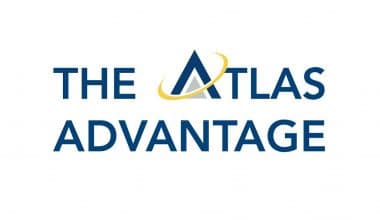State laws affect which business insurance coverage you need, and this is no different in North Carolina. From Charlotte to Raleigh, North Carolina state law requires workers’ compensation insurance for all businesses that employ three or more individuals, full-time or part-time.
This business insurance policy covers medical bills for work-related injuries and illnesses. It also provides disability benefits to injured North Carolina workers and protects employers from liability over an injury.
In addition, all business-owned vehicles in North Carolina must be covered by commercial auto insurance. This policy covers the cost of accidents involving work vehicles. These are just some of the must-have insurance policies for the state of North Carolina.
North Carolina’s small business community includes more than 950,000 million companies and is steadily growing. All of its members need small business insurance to protect their livelihoods and their employees.
Having the right coverage for your business insurance needs can help when accidents happen and give you the peace of mind to focus on your profession.
Business insurance in North Carolina can help cover costs after unexpected events, such as:
- Injuries to non-employees
- Property damage
- Accusations of professional negligence
- Employees getting hurt on the job
- Accidents while driving for business
North Carolina minimum business insurance requirements
North Carolina workers’ compensation and commercial auto insurance are required by state law under certain circumstances.
You might also be asked to have other types of insurance by your clients, licensing agencies or commercial landlords. For example, a new client might ask for a certificate of liability insurance before they’ll work with you.
Most popular North Carolina business insurance policies
Workers’ Compensation Insurance
Often called “Workman’s Comp,” this insurance covers the occurrence of employee injuries. It provides wage replacement and medical benefits to employees who are injured at work. In exchange, employees relinquish their right to sue their employer for negligence.
If you own a business in North Carolina, there are minimum business insurance requirements in the state. According to the North Carolina Workers’ Compensation Act, all businesses with three or more employees must have workers’ comp insurance or qualify as self-insured. You may not have to cover yourself if you are the sole proprietor, LLC member or partner of your business. But you must cover your employees, even if they are labeled as subcontractors or independent contractors.
It’s important to make sure you comply with North Carolina insurance law. If you don’t carry workers’ comp insurance, you can face financial penalties, criminal charges or imprisonment in extreme cases.
Commercial auto insurance
North Carolina requires commercial auto insurance if a business uses vehicles commercially, according to state laws. In North Carolina, you need the following levels of commercial auto insurance:
- Personal injury protection (PIP): this coverage helps pay for the medical expenses of drivers and passengers in your commercial vehicles.
- Commercial auto policies must have a minimum liability of $30,000 per person injured in an accident, $60,000 for all injured people, and $25,000 for all property damage. In some industries, this requirement is higher.
- Uninsured motorist insurance: this helps cover uninsured drivers, and is common in hit-and-run situations.
Business insurance in North Carolina
Most small businesses in North Carolina need more than one type of coverage to meet their insurance requirements. Below are different kinds of policies that can provide protection to keep you safe.
Business Owner’s Policy (BOP)
A Business Owner’s Policy (BOP) combines property and liability coverage into one easy-to-manage policy. It’s a great option for small to medium-sized businesses that rent or own commercial property, such as a storefront, warehouse or office building. North Carolina businesses that offer professional services should consider this coverage.
A BOP can help cover your NC business from costs resulting from fire damage, vandalism or other covered claims. It also includes business income insurance coverage to replace lost income when a business must suspend operations due to a covered loss.
General liability insurance
General liability insurance, also known as business liability insurance, is one of the most important forms of small business coverage in North Carolina. If someone claims that your business caused injuries or property damage, general liability can help pay medical bills or to repair or replace damaged items.
For example, an employee at a Charlotte-based cleaning company forgets to place wet floor warning signs and someone has a slip-and-fall injury. The cleaning company’s general liability coverage could help cover medical bills for the injured person and could help pay legal defense costs if the person is sued.
Construction and cleaning companies in North Carolina often add tools and equipment insurance to their general liability coverage. This optional upgrade can help pay to replace business gear that’s stolen, lost or damaged outside of wear and tear.
Professional liability (E&O) insurance
Many businesses in North Carolina choose professional liability insurance, which is also called errors and omissions insurance.
If someone claims that your company made a professional mistake, missed a deadline or failed to deliver work, this type of coverage can help pay attorney fees, lawsuit costs and damages.
Commercial property insurance
Commercial property insurance can help pay for damaged or destroyed business property after a covered event, such as water, fire or wind damage.
For example, if a grease fire at a Jacksonville fast-casual restaurant damaged the cooking station, commercial property coverage could help pay to repair the grill and replace frying pans that got fried.
It’s important to read your policy documents carefully to make sure there aren’t exclusions for your business. Some locations prone to flooding or hurricane damage might have limited coverage.
Best business insurance providers in North Carolina
The Hartford
Next Insurance
Next offers a wide array of commercial insurance coverage types, which can be purchased online for same-day coverage. It offers a business owner’s policy (general liability insurance and commercial property insurance), commercial auto insurance, workers’ compensation coverage, professional liability insurance, tools & equipment insurance, and more.
Next Insurance has a fast quoting system that makes it easy to get instant coverage entirely online without speaking to anyone. Through its app and new COI Analyzer, it can generate a nearly instant and free COI that you can share. Thanks to its lightning-fast convenience and range of policies offered, it is a great provider of fast coverage.
The Hartford
The Hartford has been around since 1810 and is one of the largest providers of workers’ compensation insurance in the country. Its commercial property policies are divided into two categories: small businesses with less than $200 million in total insurable value and large businesses that go over this threshold.
While the essential coverage for both remains the same, each policy is tailored toward the specific needs that change based on company size.
Thimble
Thimble is a managing general agent (MGA) that works with multiple carriers to deliver small business insurance. One of the best commercial insurance companies, it offers commercial property insurance and has a certificate manager platform that is available for property managers. The system is entirely free for policyholders.
Its simple and quick quoting system and the ability to quickly change coverage online or on the app make it one of the best. This also includes the ability to add any additional insureds for the properties you manage.
Thimble is a great option for small businesses that need quick, temporary, affordable small business insurance, particularly those looking to purchase coverage for an event or on an on-demand basis. The company’s business owner’s policy includes general liability, commercial property insurance, and business interruption insurance, and you can also add professional liability, workers’ compensation, and business equipment protection.
Hiscox
A dedicated small business insurer, Hiscox offers a wide range of insurance. However, for those who want commercial property, most of its offerings are for consultants. Some types that it covers are business, education, marketing, human resources (HR), information technology (IT), and management consultancies.
Hiscox offers a straightforward business owner’s policy (BOP) for businesses in North Carolina. You can customize this with business interruption insurance, electronic data loss insurance, professional liability insurance, and more.
Huckleberry
Huckleberry offers a restaurant endorsement as an add-on to its business owner’s policy. It is a bundle of food-specific coverages that includes spoilage coverage, food contamination insurance, and ordinance or law equipment coverage, among others. Plus, you can add workers’ comp, commercial auto, and liquor liability coverage to customize your business insurance policy as needed.
Also, you can get a certificate of insurance online to share with clients in less than a minute.
Huckleberry’s BOP includes general liability, commercial property, and business interruption insurance and pricing is reasonable. For example, a BOP for a food truck starts at $37 per month.
How much does North Carolina business insurance cost?
Commercial insurance can be affordable for small business owners in Charlotte and elsewhere in the state. Average costs in North Carolina are:
General liability: $42 per month
Workers’ comp: $50 per month
Professional liability/E&O: $56 per month
Business insurance in North Carolina is priced based on your profession, business operations and size. Here are some factors that will influence the cost you’ll pay:
Your company’s exposure to risk
If you’re in an industry that’s more likely to experience injuries and accidents, you’ll probably pay more for your business insurance. For example, auto body repair shops are places where bodily injury and property damage can happen. Their coverage often costs more than desk workers like real estate agents and graphic designers.
The number of employees you have
Companies with larger headcounts will spend more on workers’ compensation coverage each month than those with fewer employees. To get the most accurate insurance quote, be sure to use your exact employee count.
The policies you choose
Business insurance will cost more as you add policies to your coverage package. However, you can sometimes bundle more than one policy and receive discounts. Most businesses need more than one type of policy to protect them in different situations.
How much business insurance coverage do I need in North Carolina?
The amount of coverage you need — and its cost — will vary greatly depending on the type of business you run, its size, number of employees and assets, and other factors.
Most small businesses in North Carolina need general liability insurance, property insurance, and business interruption coverage along with workers’ comp and auto insurance. You can package these coverages into a BOP to make things easier and, in most cases, save some money. If you have employees, you’ll likely also need workers’ compensation. Meanwhile, you’ll need commercial auto insurance if your business owns, rents, or leases cars or trucks.
Many insurance company websites have coverage selection tools to help you understand your business’s coverage needs. Some companies even sell packages of coverage tailored to the needs of specific types of businesses. You can also reach out to an insurance agent who sells business insurance.
An agent will take the time to understand your business and match you with a policy that meets your needs.
Recommended Articles
- Business Owner Policy: What It Is & What It Covers
- Business Insurance in New Jersey: Types, Requirement & Best Providers
- DOES INSURANCE COVER WINDSHIELD REPLACEMENT?
- Business Insurance Quotes: Getting Insurance Quote Online
- BEST CHEAP BUSINESS INSURANCE: Your Ultimate Guide
- Car Insurance For Kids: What You Should Know






